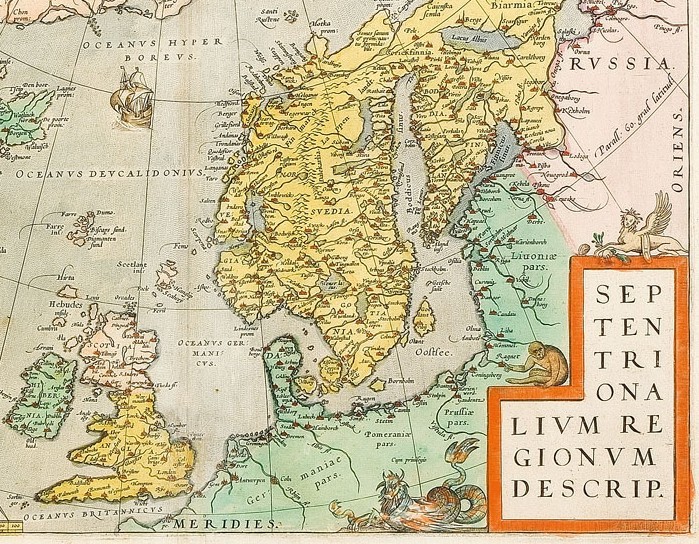Migration, Community and Identity in Early Modern Northern Europe
Module Leader: Dr Kathrin Zickermann

Abraham Ortelius, Septentrionalium Regionum Descrip, c. 1570
File:Abraham Ortelius-Septentrionalium Regionum Descrip.jpg - Wikimedia Commons
Migration and the control of migration are common phenomena in the human experience. Looking at the consequences of Brexit for the freedom of movement or the catastrophic impact of war on the Ukrainian population, it is obvious that migration remains most topical for our society today. As in our time, people of the early modern period were confronted with the movement of people, either by migrating themselves to places which promised a better fortune or by meeting immigrants in their own communities. The migrants’ experience will be at the forefront of this module which will engage with the diverse reasons for early modern migratory movements and analyse the formation of foreign communities in places around the North Sea and Baltic region. In doing so, the module will not only focus on different groups of migrants such as merchants, soldiers, academics, and religious refugees but also engage with the question of how these expats and refugees integrated into their host communities, formed foreign communities and shaped their identities over time.
These questions necessitate a thorough understanding of the attitudes of the migrants’ host communities as authorities in the Dutch Republic, Sweden, Pommerania, or Poland-Lithuania sought to control, support or restrict early modern migration in different ways. The perception of the strangers and the engagement with ‘Otherness’ also varied from region to region and depended on the type of migrant the indigenous population became confronted with. By focusing on the migrants’ impact on their host communities’ culture and their commercial success, this module will not only explore the importance of early modern migration but also encourage a thorough engagement with diverse territories in the North Sea and Baltic region and highlight the importance of the seas, rivers and other waterways for the movement of people and ideas.
Indicative Content
- Early Modern Communities in the North Sea and Baltic Region
- Migration and Cultural Transfer Across Borders
- Commercial Migration, Networks and Communities
- Military Migration
- Religious Diasporas
- Academic Networks and Mobility
- Belonging and Identity
- Encountering the Other and Borderland Identities
- Return Migration
- Foreign Merchants in Early Modern Sweden
- Religious Communities in Amsterdam
- The Scottish Diaspora
Coursework
Source Analysis – 1000 words, 40%
Essay – 3000 words, 60%
Method of Delivery
This module is taught through live classes and an online Discussion Board. There are 10 weekly live session, each of 1 hour, which will take place on a day and time to be confirmed before the start of semester. All live sessions will be recorded and so students who are unable to attend these opportunities will be able to view the recordings in their own time. Students should also engage with the Discussion Boards for each theme to enable online discussion of weekly topics.
Recommended Reading
See Module Resource List.
Fees and funding
See UHI website.